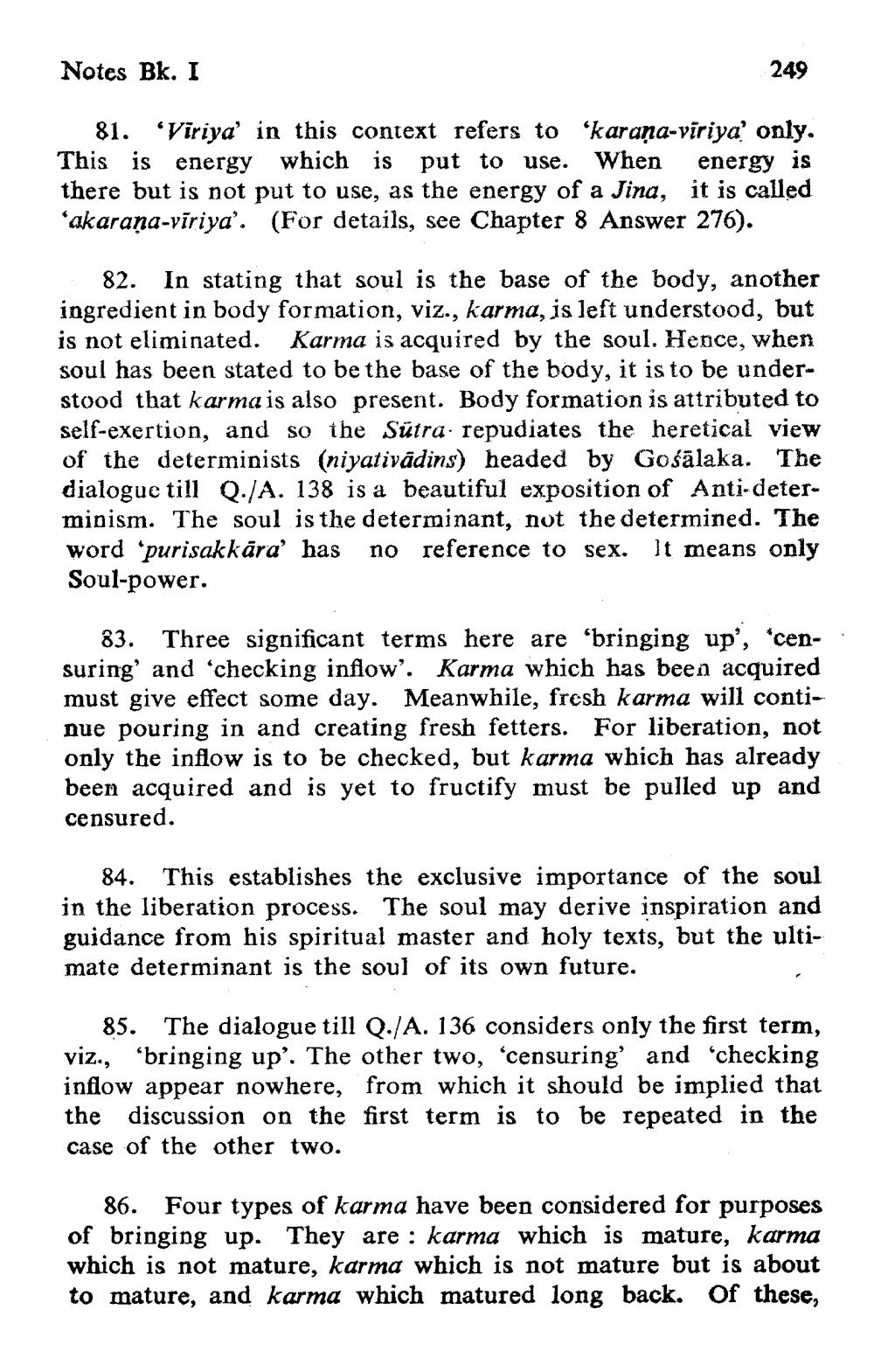________________
Notes Bk. I
81. 'Viriya' in this context refers to 'karaṇa-viriya' only. This is energy which is put to use. When energy is there but is not put to use, as the energy of a Jina, it is called *akaraṇa-vīriya'. (For details, see Chapter Answer 276).
249
82. In stating that soul is the base of the body, another ingredient in body formation, viz., karma, is left understood, but is not eliminated. Karma is acquired by the soul. Hence, when soul has been stated to be the base of the body, it is to be understood that karma is also present. Body formation is attributed to self-exertion, and so the Sutra repudiates the heretical view of the determinists (niyativādins) headed by Gośālaka. The dialogue till Q./A. 138 is a beautiful exposition of Anti-determinism. The soul is the determinant, not the determined. The word 'purisakkāra' has no reference to sex. It means only Soul-power.
83. Three significant terms here are 'bringing up', 'censuring' and 'checking inflow'. Karma which has been acquired must give effect some day. Meanwhile, fresh karma will continue pouring in and creating fresh fetters. For liberation, not only the inflow is to be checked, but karma which has already been acquired and is yet to fructify must be pulled up and censured.
84. This establishes the exclusive importance of the soul in the liberation process. The soul may derive inspiration and guidance from his spiritual master and holy texts, but the ultimate determinant is the soul of its own future.
85. The dialogue till Q./A. 136 considers only the first term, viz., bringing up'. The other two, 'censuring' and 'checking inflow appear nowhere, from which it should be implied that the discussion on the first term is to be repeated in the case of the other two.
86. Four types of karma have been considered for purposes of bringing up. They are: karma which is mature, karma which is not mature, karma which is not mature but is about to mature, and karma which matured long back. Of these,




